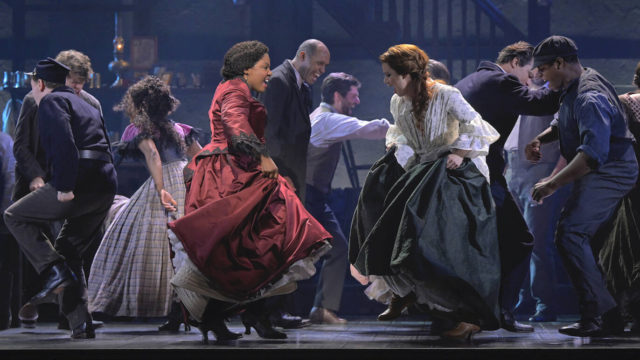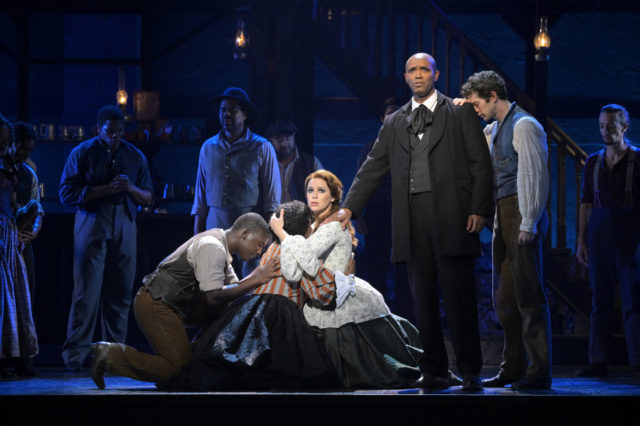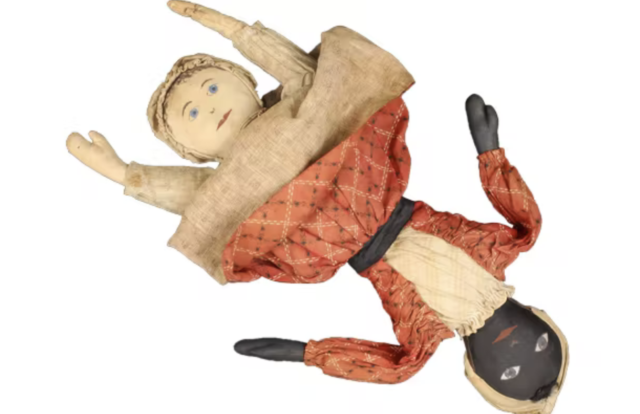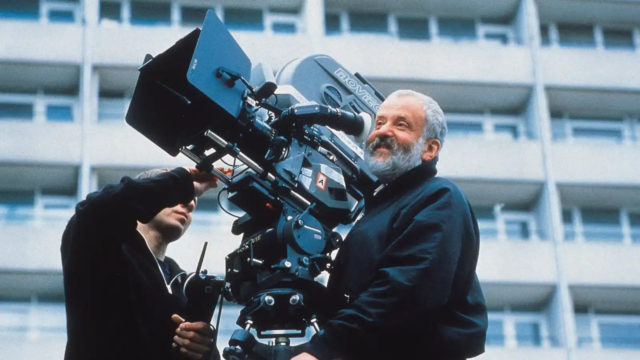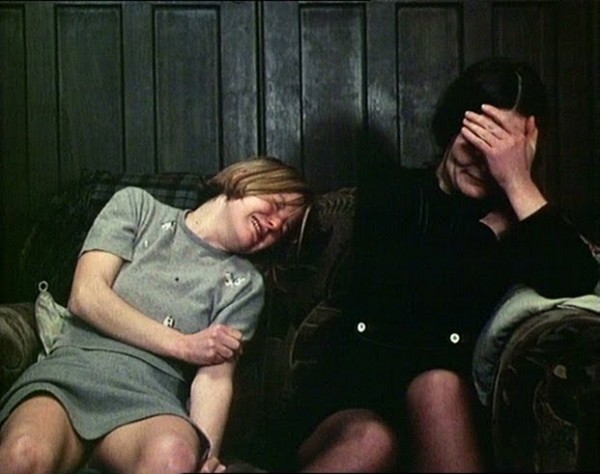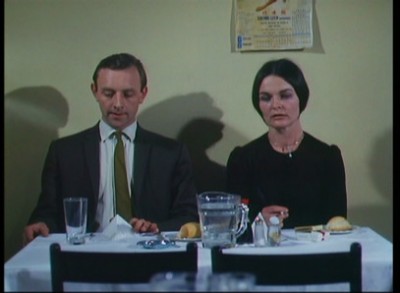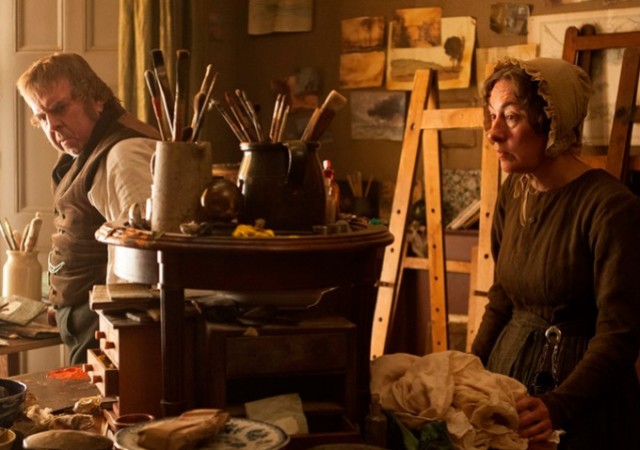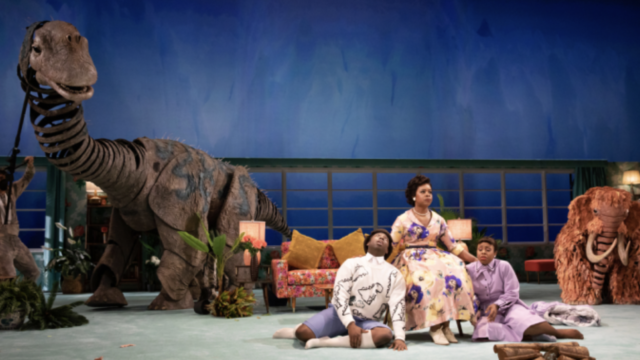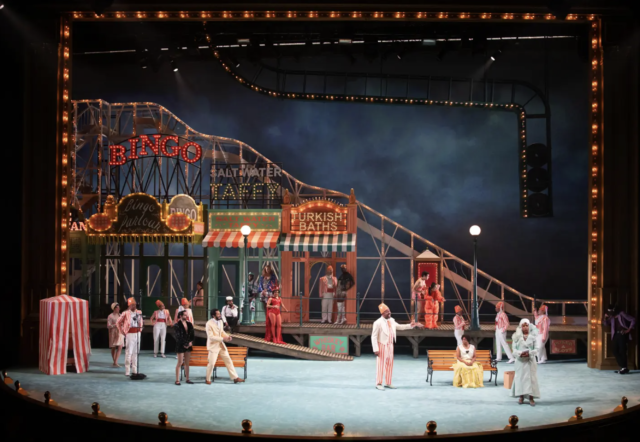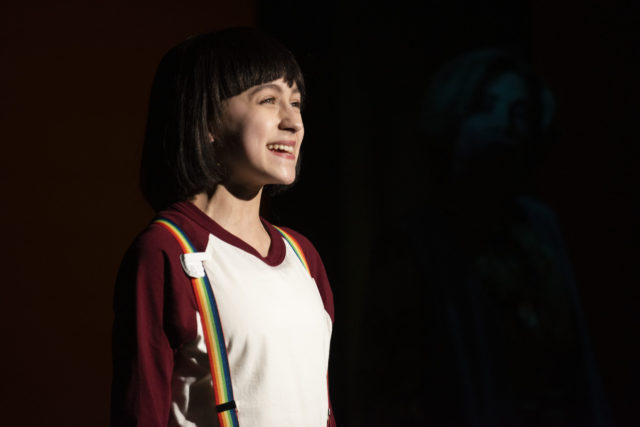
Zoe Glick is delightful as a young girl with an embarrassing problem in world premiere musical at the Atlantic (photo by Ahron R. Foster)
THE BEDWETTER
Atlantic Theater Company
Linda Gross Theater
336 West 20th St. between Eighth & Ninth Aves.
Tuesday – Sunday through July 10, $111.50 – $131.50
866-811-4111
atlantictheater.org
Sarah Silverman is a superhero comedian, actress, and activist, and the new musical The Bedwetter is her origin story — and it’s more fab than we could ever have hoped, no mere trickler.
In her 2010 memoir, The Bedwetter: Stories of Courage, Redemption, and Pee (HarperCollins, April 2010, $19.99), Silverman detailed how she dealt as a child with nocturnal enuresis, mixing comedy with heartfelt poignancy as she openly and honestly examined the shame she suffered through. While the world premiere musical, which opened Tuesday night at the Atlantic for a limited run through July 3, also has its tender, emotional moments, it’s mostly a jubilant, hysterically funny tale about a unique young girl (Zoe Glick) and her dysfunctional family as she begins fifth grade in a new school.
Sarah’s parents have recently divorced. Her severely depressed mother, Beth Ann (Caissie Levy), spends all day and night in bed, watching her favorite movie and TV stars, never venturing outside. Sarah’s philandering father, Donald (Darren Goldstein), is the owner of Crazy Donny’s Discount Clothing Store and loves telling Sarah and her older sister, eighth grader Laura (Emily Zimmerman), dirty jokes utterly inappropriate for children. Meanwhile, Sarah’s beloved nana (Bebe Neuwirth) speaks without a filter, smokes like a fiend, and has Sarah regularly mix her Manhattans.
“I’m just really really fucking excited to be here!” Sarah cries out in class on her first day of school, angering her teacher, Mrs. Dembo (Ellyn Marie Marsh), who says, “Sarah! We don’t use language like that!” Sarah responds, “Sorry, Mrs. Dembo! I know that’s an ‘at home’ word.” Well, not at most suburban homes with young kids.
Sarah is a happy-go-lucky girl who manages to smile through all her family weirdness; she is ridiculously cute in her tight black bangs and shiny eyes. (The hair and wig design is by Tom Watson.) When she tries to make friends with a trio of mean girls — Ally (Charlotte Elizabeth Curtis), Abby (Charlotte MacLeod), and Amy (Margot Weintraub) — she has an unusual take on their verbal attacks on her.
“Your arms are so hairy!” Ally sings. “I couldn’t agree more! You should see my back!” Sarah responds. “Your teeth are enormous!” Abby declares. “I couldn’t agree more! To keep them this yellow takes extra plaque!” Sarah joyfully admits. “You’re short and dark and strange and eww-y!” the three girls say. “I know what you mean! I’m totally Jew-y!” Sarah replies with a big grin.

Sarah Silverman (Zoe Glick) and her father (Darren Goldstein) visit the doctor in The Bedwetter (photo by Ahron R. Foster)
At school, Laura prefers to ignore her little sister, but Sarah can’t help but stick around her. Laura explains, “Like do you know the type of person that like wants to smell all the bad smells? Like when the milk goes bad she’s like let me smell it and you say why would you want to and she says she just ‘wants to know’? Or like . . . do you know the type of person that’ll wake you up at 1 am and say, ‘Laura, does the pee come out the baby hole, or its own hole? . . . And how many holes do we have?’” To which Sarah says, “Yeah! And like, do you have a period hole now?”
But as with all superheroes, she has her own personal Kryptonite, in this case the severe shame of wetting the bed every night. When one of her worst nightmares comes true, Sarah’s father takes her to see a hypnotist, Dr. Grimm, then a pill-crazed screwball, Dr. Riley (both played by Rick Crom), but that only makes matters worse as she struggles, like any preteen, to fit in. She tries to find solace in her own superhero, Bedford native Jane Badler, aka Miss New Hampshire (Ashley Blanchet), who shows up at various times as a goddess of perfection, offering tidbits of wisdom in her beauty-pageant costume.
The Bedwetter is a sparkling adaptation of Silverman’s memoir, ready, willing, and able to pull no punches and hold nothing back. It might be about a ten-year-old, but it is most definitely not for kids; a group of children were sitting around us, and they looked rather uncomfortable through much of the show, particularly during Donald’s “In My Line of Work,” in which he proudly proclaims numerous times to several kids, “I fucked your mom!” It’s reminiscent of Silverman’s innovative cable sitcom The Sarah Silverman Program, which ran from 2007 to 2010 and approached her life with a wicked sense of humor as she brilliantly, and often controversially, complete with ferociously funny cringe-worthy moments, faced such issues as racism, anti-Semitism, abortion, and same-sex marriage. (It was a family affair, as her older sister, Laura, portrayed her younger sister.)
A nontraditional musical that brings to mind Fun Home, The Bedwetter features a jaunty pop score by three-time Emmy and Grammy winner and Oscar and Tony nominee Adam Schlesinger (Cry-Baby, “That Thing You Do!”), a founding member of Fountains of Wayne (Utopia Parkway, “Stacy’s Mom”) who died of Covid-19 complications in April 2020 at the age of fifty-two; the playful lyrics, which toy with genre cliches and regularly go to unexpected places, are by Schlesinger and Silverman, set to perky orchestrations by David Chase.

Nana (Bebe Neuwirth) has some choice advice for Sarah (Zoe Glick) in rousing musical (photo by Ahron R. Foster)
But it’s the book that really glows, written by Silverman and Joshua Harmon, one of today’s best playwrights; his recent work includes the extraordinary epic Prayer for the French Republic, the dazzling black comedy Bad Jews, and the moving relationship drama Significant Other. Harmon and Silverman tell the story with charm, incorporating just the right amount of tsuris. And only Sarah Silverman could get away with saying, “Oh, John Lennon. This might sound weird, but your senseless murder has made one little girl very happy.” Bedwetting becomes instantly relatable, resonating with any shame anyone in the audience may be holding inside.
Obie-winning director Anne Kauffman (The Nether, Mary Jane) has a firm grasp of the unusual material, unfolding on Laura Jellinek’s graceful sets, which morph from bedrooms to school hallways to doctors offices. Byron Easley’s choreography nearly brings the house down in a number involving dancing pills.
Glick (Frozen, Les Misérables) is a delight as young Sarah, bursting with confidence in a challenging role; she’s actually fourteen, so it’s a little easier to accept many of the words and ideas that come out of her character’s mouth. Goldstein (The Little Foxes, Continuity) and Levy (Frozen, Caroline, or Change) make a fine pair of dueling exes, while Neuwirth (Chicago, Cheers) is like a queen holding court as Nana. Crom (Urinetown, Merrily We Roll Along) nearly steals the show as the doctors (among other minor roles) when Blanchet (Waitress, Beautiful) isn’t taking center stage as the cryptic Miss New Hampshire. [Ed. note: Jessica Vosk will play Beth Ann and Elizabeth Ward Land will take over the role of Nana from July 5 to 10.]
But mostly, The Bedwetter is about discovering and accepting who you are, making necessary changes as you grow, and becoming part of the world around you. As Phyllis Campbell (Marsh), Amy’s mother, says to the kids at her daughter’s birthday party, “May all your dreams come true! Mine did not!” In The Bedwetter, Silverman dares us to face our fears, and beat them silly.
